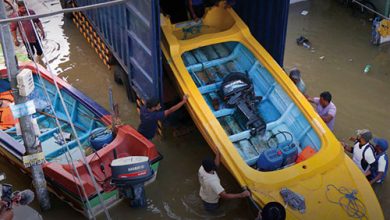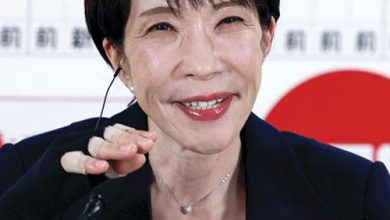CORRUPT POLITICIANS
Polls indicate that over half of El Salvador’s population believes that President Nayib Bukele will eradicate political corruption. Bukele is a politician and businessman who won the presidency in February 2019, following a successful campaign to end gang violence and corruption in government.
HOW TO AXE ROGUE POLITICOS!
Inspired by the success that Guatemala had in curtailing fraud, El Salvador followed suit – Rajika Jayatilake reports
 He moved to end nepotism and waste by removing highly paid but unqualified officials, relatives of the former president and past politicians from office. And as the Secretary-General of the OECD José Ángel Gurría once said, “integrity, transparency and the fight against corruption have to be part of the culture – they have to be taught as fundamental values.”
He moved to end nepotism and waste by removing highly paid but unqualified officials, relatives of the former president and past politicians from office. And as the Secretary-General of the OECD José Ángel Gurría once said, “integrity, transparency and the fight against corruption have to be part of the culture – they have to be taught as fundamental values.”
Unfortunately, El Salvador – which is the smallest country in Central America – has corruption woven into its culture. In 2018, the courts sentenced former President Antonio Saca to 10 years in prison. Saca admitted in court that he had created a network of bogus companies and front men to embezzle US$ 300 million in state funds.
Saca’s predecessor Francisco Flores Pérez allegedly diverted a 15 million dollar donation from Taiwan to help Salvadoran earthquake victims in 2001. He died while under house arrest in 2016, awaiting trial.
Recently, El Salvador’s Supreme Court granted a request by the attorney general to extradite ex-president Mauricio Funes from Nicaragua (where he has been granted political asylum) to face corruption charges in his homeland. Funes served as president from 2009 to 2014 and stands accused of embezzling US$ 351 million.
Starting at the highest levels of government, corruption in El Salvador has been increasing in recent years. Between 1998 and 2018, the country averaged 70.38 in Transparency International’s Corruption Ranking with an all-time low of 43 in 2000 and an all-time high of 112 in 2017. Dipping slightly last year, El Salvador was the 105th Least Corrupt Nation out of 175 countries assessed.
With corruption weighing down this poverty-stricken nation, it’s not surprising that Bukele was inspired by neighbouring Guatemala’s anticorruption body – the International Commission against Impunity in Guatemala (CICIG) – which helped reduce corruption in that country. CICIG was a UN backed anticorruption body mainly financed by the US and EU. It worked closely with Guatemala’s attorney general to investigate corruption at the highest levels of government.
Over a 12 year period commencing in 2007 with the dismantling of criminal networks connected to political power, the country’s murder rate fell by five percent annually and 46 murders for every 100,000 people in 2008 dropped to less than 23 last year. The International Crisis Group (ICG) says that more than 4,650 lives were saved in Guatemala between 2007 and 2017.
Less corruption meant that more funds were available to pay for anti-violence public services, salaries for prosecutors and equipment for police officers. Less obviously, CICIG helped Guatemala implement judicial reforms and modernise prosecution techniques. Better investigation methods also improved communication and coordination between prosecutors and the police.
With CICIG’s further assistance, Guatemala introduced legal wiretapping, witness protection programmes, tribunals to protect judges and a special analysis unit that investigates criminal networks. It also strengthened its Public Ministry’s capacity and empowered it to persistently pursue sensitive high-level cases.
These investigations led to the resignation and subsequent imprisonment of former President Otto Pérez Molina in 2015 for his involvement in a gigantic tax fraud that also compromised his vice president. UN Representative Laura Flores observed: “CICIG was an innovative experiment. It became a landmark on a global scale.”
Molina’s successor Jimmy Morales came into power promising to carry on fighting corruption. However, when Morales himself came under investigation, he decided not to renew the CICIG mandate and shut it down in September 2019.
El Salvador launched an anticorruption organisation called the International Commission against Corruption and Impunity in El Salvador (CICIES), which is modelled on CICIG with sufficient high-level fraud to justify the name. With a weak underfunded judicial system, El Salvador desperately needs the additional reforms that a UN backed anticorruption commission could bring.
In addition, implementing CICIES was a key campaign promise that brought Bukele into power. Many Salvadorans believe that like CICIG, CICIES too will serve as a potentially powerful tool to fight political corruption and criminal networks.
For the people of El Salvador, violence is as troubling as corruption with a homicide rate of 51 for every 100,000 in 2018, which was among the highest in the world. This has left many Salvadorans with no option but to flee to safer parts of the globe. Although murders have reduced in recent years, disappearances have increased.
Bukele’s commission against corruption could help deal with all these issues by adopting a strategy to bring peace to El Salvador.
El Salvador’s Vice President Félix Ulloa has said that observers and policy makers believe less corruption means less crime. With a commission like CICIES, it is hoped that not only violence but also forced migration, unemployment, illnesses and even illiteracy will decrease.






